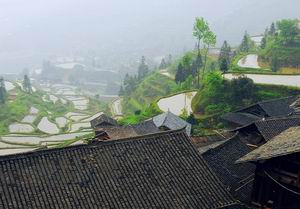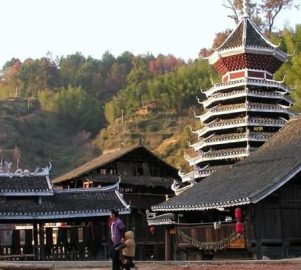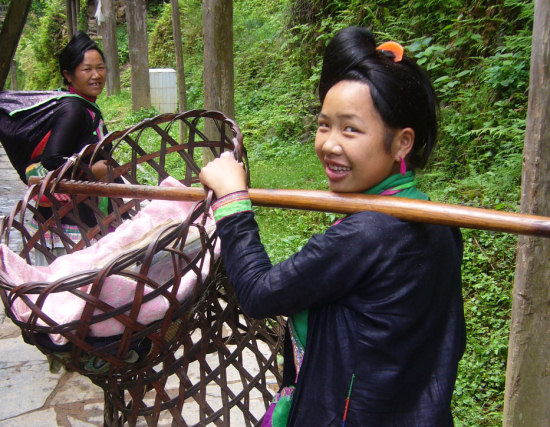Dong Ethnic Group

Dong ethnic group is one of the 56 ethnic groups in China. The population of this ethnic group in China is 2.5 million. Situated no more than 300 km north of the Tropic of Cancer, the area people by the Dongs has a mild climate and an annual rainfall of 1,200 mm. The Dong people grow enormous numbers of timber trees which are logged and sent to markets. Tong-oil and lacquer and oil-tea camellia trees are also grown for their edible oil and varnish.
The most favorite tree of the people of this ethnic group is fir, which is grown very extensively. Whenever a child is born, the parents begin to plant some fir saplings for their baby. When the child reaches the age of 18 and marries, the fir trees, that have matured too, are felled and used to build houses for the bride and groom. For this reason, such fir trees are called "18-year-trees." With the introduction of scientific cultivation methods, a fir sapling can now mature in only eight or 10 years, but the term "18-year-trees" is still current among the Dong people.
Farming is another major occupation of the Dongs, who grow rice, wheat, millet, maize and sweet potatoes. Their most important cash crops are cotton, tobacco, rape and soybean.
With no written script of their own before 1949, many Dongs learned to read and write in Chinese. Philologists sent by the central government helped work out a Dong written language on the basis of Latin alphabet in 1958.
Must-see Villages in Guizhou and Guangxi
Basha Zhaoxing Tang'An Xijiang Sanjiang Longsheng
Frequently asked questions in Guizhou





